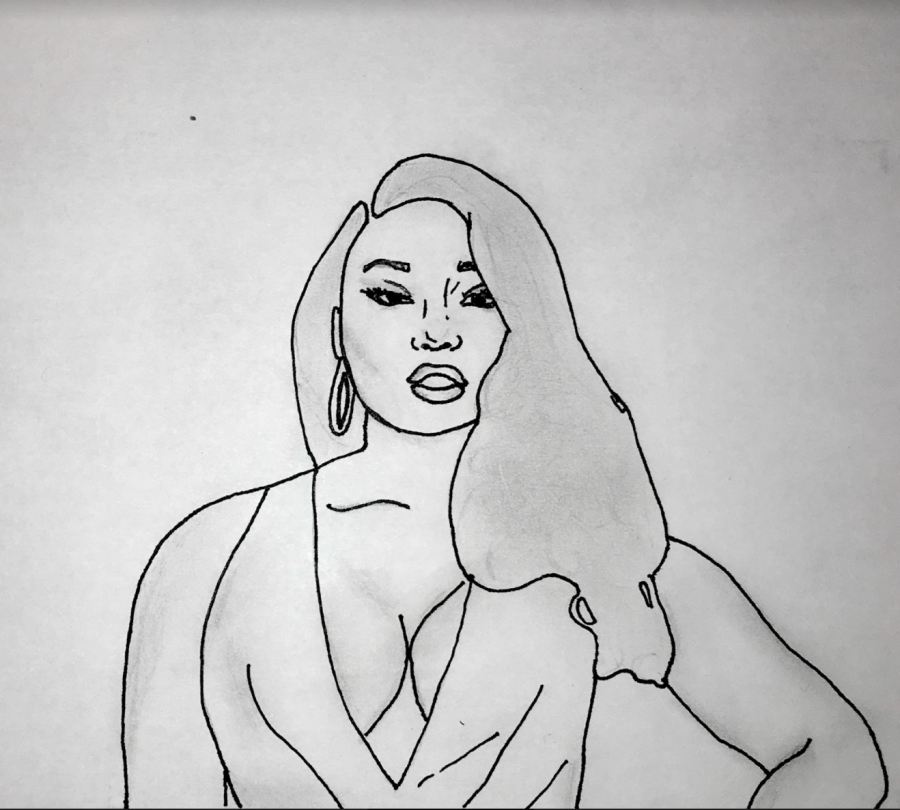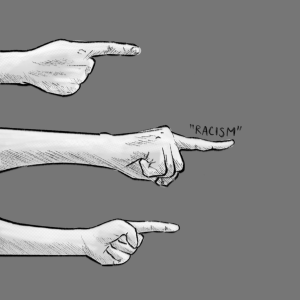Reaction to Megan Thee Stallion’s Shooting Shows Treatment of Black Women in America
October 29, 2020
“The most disrespected person in America is the Black woman,” Malcolm X famously stated in his speech at the funeral of Ronald Stokes in 1962—nearly 60 years later, this statement still holds to be true. On July 15th, 2020, rapper and songwriter Megan Thee Stallion came forward stating that she had suffered gunshot wounds in her feet and had undergone surgery to remove both of the bullets. In the following month, Megan shared publicly that the perpetrator was rapper Tory Lanez. The poor reception that followed Megan after her accusation quickly showed the unfair standard that Black women are subject to.
Initially, a lot of support for Megan Thee Stallion was thrown around online; figures like Michael B. Jordan and Kehlani tweeted in support of Megan and Black women in general. In response to the controversy, Kehlani removed Lanez’s verse off of her song “Can I,” saying that it was the right thing to do “as someone that people look up to [and] as a woman that makes other women feel safe and empowered.” However, it became apparent that many people didn’t share that compassion, as memes about the situation started to circulate on social media. Phrases like ‘Shot Girl Summer,’ an appallingly insensitive play on words of Megan’s song “Hot Girl Summer,” surfaced on Twitter. Others came in defense of Lanez, accusing Megan of lying about getting shot or straight up blaming Megan for associating with Lanez in the first place.
In response to the unwarranted backlash, Megan took to her Instagram to post pictures of her feet after the incident in a now deleted post. Megan felt she had to prove her trauma by releasing images of her injury to the public in order for people to finally believe her. We as a society have become so desensitized to the trauma that Black women face that we make light of it, discredit it, and don’t believe it until we see physical evidence of it. Imagine if it was a white singer in Megan’s place—the same callous energy would never be held for Ariana Grande or Billie Eilish. If the victim had been white, celebrities would not have been able to get away with statements such as those from Draya Michele who stated, “I want you to like me so much that you shoot me in the foot, too,” or Chrissy Teigen who tweeted, “I have a Megan thee stallion joke but it needs to be twerked on.” The response of many celebrities is an example of how violence towards Black women has been normalized and turned into comedy.
Tory Lanez shouldn’t have a career anymore. His figures certainly have dropped since the incident, with Nielsen Music reporting his streams dropping from 30 million in June to nine million after Megan came forward. However, Lanez released a new album on September 25th to a number ten debut on the Billboard 200 chart, accumulating over 47 million streams in its first week. While this is an obvious drop from his previous album which peaked at number two on the chart, it’s still disheartening that he has an audience at all. Many people criticized Lanez’s release, pointing out that his release was thoughtlessly placed one day after the trial for Breonna Taylor’s death, in which her murderers were acquitted. Breonna Taylor was brutally murdered by police earlier this year, which has led to many people calling for her justice, as well as calling out the complicitness of the American people, including Black men, to the violence that Black women are subject to.
Megan’s story is bigger than just her; it’s the result of America’s endless track record of disregarding Black women─from being excluded from the women’s suffrage movement in the late 1800s, to the murder of Oluwatoyin Salau this past year, who was a 20 year old activist murdered after speaking out about being sexually assaulted. It’s the medical racism Black women face, being two-to-three times more likely to die during pregnancy than white women, or being less likely to be believed when coming to a doctor about their pain. The fact that Breonna Taylor was initially alive after being shot but didn’t receive any medical attention for more than 20 minutes isn’t an isolated issue, it’s a symptom of a larger problem.
It’s also important to stress the very notable silence on the end of white celebrities, a term that has been coined as ‘white silence’ in recent years. For example, Kylie Jenner has yet to comment on the situation, despite the shooting taking place after a party thrown by her. Many allies of the Black community and Black women in particular are taking issue with this fact considering how much Kylie and her family regularly profits off of Black culture (the Kardashians have come under fire for the way that their fashion and aesthetic appropriate the culture of Black women without any credit. The failure on the part of Kylie and her family to speak out for Megan is not only ironic, but it supports the culture where Black women are subject to mistreatment.
Despite being constantly held back, Megan has found unmatched success this year. She has broken many records—one of which was being one of four Black women ever to occupy the top two spots on the Billboard Hot 100 chart with her remix of “Savage” featuring Beyonce, along with “Say So” by Doja Cat featuring Nicki Minaj. With her feature on Cardi B’s “WAP,” they broke the record for the biggest debut streaming week of all time, with a massive figure of 93 million streams. Her success, however, begs the question: when will we, as a society, start protecting and loving our Black women as much as we love consuming their art and culture?









